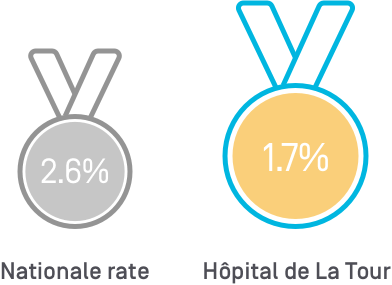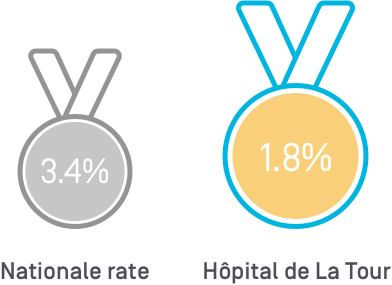Two-year revision rates for hip and knee replacement surgery
Introduction
Since 2012, Hôpital de La Tour has submitted data to the Swiss National Hip & Knee Joint Registry (SIRIS) created by the Swiss Foundation for Quality Assurance in Implant Surgery.
Assessments for each hospital were published transparently on the web portal of the National Association for the Development of Quality in Swiss Hospitals and Clinics (ANQ) for the first time in 2021. All primary prostheses fitted between July 1, 2014, and June 30, 2018, were recorded and analyzed, and any revision operations were reviewed up to June 30, 2020.
Seventeen implant systems have a high two-year revision rate but these findings are not confirmed by statistics in all cases. There are many different reasons for a high revision rate, including the material, the surgeon, the follow-up care, or the patient’s actions after the replacement surgery.
To read the Swiss National Hip & Knee Joint Registry (SIRIS) report 2020 on the ANQ website, click here.
A similar registry was established in January 2021 for spinal implants.
Two-year revision rate for hip replacement surgery
Two-year revision rate for knee replacement surgery in 2021
Improvement measures taken
In line with other relevant quality indicators, Hôpital de La Tour decided to implement internal monitoring to be more responsive in identifying possible quality issues and introducing the appropriate corrective action, without necessarily waiting for the national report and results to be published. This has already led to several benefits, including improvements to the quality and completeness of information recorded in the SIRIS.

